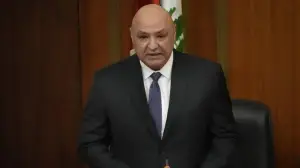U.S. Secretary of State Marco Rubio has urged China to intervene and prevent Iran from potentially closing the Strait of Hormuz, warning that such an action would have devastating consequences for the global economy.
The appeal comes after reports on Iran's state-run Press TV indicated that the country's parliament had approved a preliminary plan to block the strategic waterway, which handles approximately 20% of the world's oil shipments.
"I encourage the Chinese government in Beijing to call them [Iran] about that, because they heavily depend on the Strait of Hormuz for their oil," Rubio said during a Sunday interview with Fox News. "If they [close it]... it will be economic suicide for them. And we retain options to deal with that, but other countries should be looking at that as well."
Oil Prices Surge Amid Escalating Tensions
The diplomatic tensions have already impacted global oil markets, with Brent crude climbing to $78.89 a barrel late Sunday—its highest level since January—following U.S. military participation in strikes on Iranian nuclear sites over the weekend.
"The U.S. is now positioned with an overwhelming defence posture in the region to be prepared for any Iran counterattacks. But the risk for oil prices is that the situation could escalate severely further," said Saul Kavonic, Head of Energy Research at MST Financial.
China's Stake in the Crisis
China, as the largest buyer of Iranian oil, has significant leverage in the situation. According to data from ship tracking firm Vortexa, China imported more than 1.8 million barrels of oil per day from Iran last month.
Energy analyst Vandana Hari noted that closing the Strait would likely backfire on Iran: "Iran risks turning its oil and gas producing neighbours in the Gulf into enemies and invoking the ire of its key market China by disrupting traffic in the Strait."
Escalating Regional Conflict
The tensions come as the U.S. has escalated its role in the Middle East conflict, with President Donald Trump announcing the "obliteration" of key Iranian nuclear facilities. However, independent assessments of the damage remain unclear, with the UN nuclear watchdog unable to access the Fordo facility to verify Iran's claims of minor damage.
In response, China has criticized the U.S. strikes. Beijing's UN ambassador Fu Cong called for restraint and an immediate ceasefire, warning against adding "fuel to the fire." Chinese state media echoed this sentiment, claiming U.S. involvement "further complicated and destabilised the Middle East" and pushed the conflict toward an "uncontrollable state."
The final decision on closing the Strait reportedly lies with Iran's Supreme National Security Council, according to Iranian state media.
Any disruption to the Strait of Hormuz would have immediate and far-reaching consequences, especially for oil-importing nations in Asia, including India, Japan, and South Korea, which rely heavily on oil passing through this critical waterway.
Follow BenriNews on Facebook | Twitter | LinkedIn | WhatsApp | Telegram













